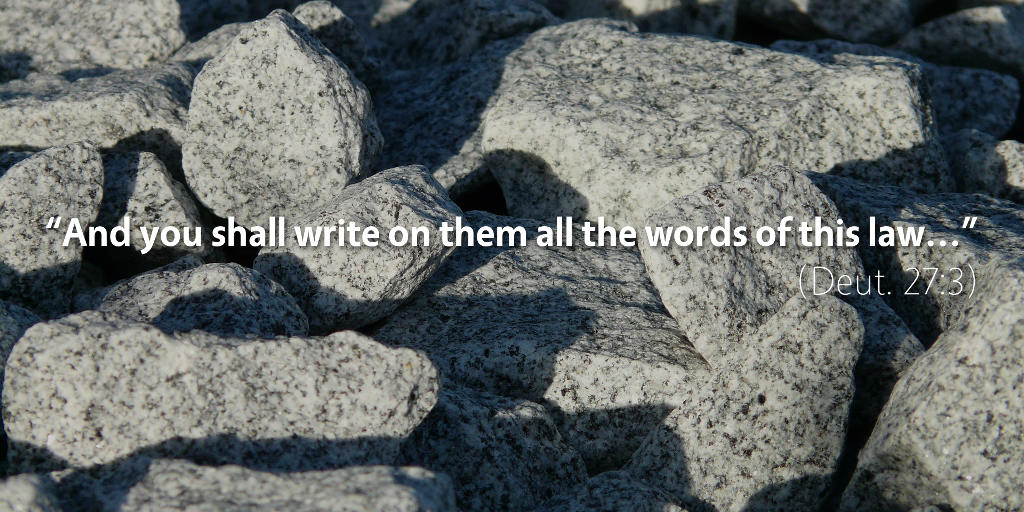Bible Readings for June 22nd
Deuteronomy 27 | Psalm 119:1–24 | Isaiah 54 | Matthew 2
At the end of Deuteronomy 26, Moses concludes his second giving of the law. Through the entire book of Deuteronomy, Moses had been giving an extended sermon to exhort Israel to abide in God’s law. But after proclaiming the whole law to Israel, Moses now—before he dies—explains to Israel the covenant renewal process in which they would partake as they entered into the Promised Land.
So, Moses first insists that, after the people have entered into the land, they should write the law on large stones in plaster as a permanent memorial (Deut. 27:1–4). Then, Moses commands Israel to build an altar of uncut stones, where they would sacrifice burnt offerings and peace offerings, rejoicing before Yahweh.
This ceremony, then, with the proclamation of the law, the burnt offerings, and the peace offerings, would resemble the feast that Israel enjoyed in the presence of Yahweh at the ratification of their covenant on Mount Sinai back in Exodus 24. At that feast, Israel’s chief men saw God as they ate and drank, but God did not lay his hand on them (Ex. 24:11). But sadly they would feast with Yahweh on that day without Moses.
On that day, Yahweh would guide his people Israel according to their covenant law and by their covenant sacrifices but without Israel’s great covenant mediator. Israel would have other covenant mediators—other prophets, priests, and kings who would intercede with Yahweh on behalf of Israel—but never again would a great mediator arise like Moses, whom Yahweh knew face to face (Deut. 34:10).
This creates a great tension through the rest of the Old Testament, where Israel wanders about like sheep without a shepherd. Moses was the greatest hope that Israel would see, but even he could not accompany Israel into the Promised Land.
This tension does not resolve until we read about the coming of the Good Shepherd, who takes compassion on the lost sheep of Israel. But Jesus, the new prophet like Moses (Deut. 18:15), did not merely ratify again the old covenant that Yahweh had made with Israel at Mount Sinai—instead, he came to be the mediator of a new covenant, a covenant sealed with his own broken body and shed blood (Matt. 26:26–29) as he spoke his own commandments to his people (John 13:31–35).
Moses’s dying plea points forward to covenant fellowship with God—at first, through the temporary covenant that God’s people would break, but ultimately through the eternal covenant ratified with the precious blood of our great shepherd of the sheep. And according to this covenant, may the God of peace now “equip you with everything good that you may do his will, working in us that which is pleasing in his sight, through Jesus Christ, to whom be glory forever and ever. Amen” (Heb. 13:21).
Podcast: Play in new window | Download (4.9MB) | Embed
Subscribe: Apple Podcasts | RSS | More

Scripture quotations are from The Holy Bible, English Standard Version copyright © 2001 by Crossway Bibles, a division of Good News Publishers. Used by permission. All rights reserved.


